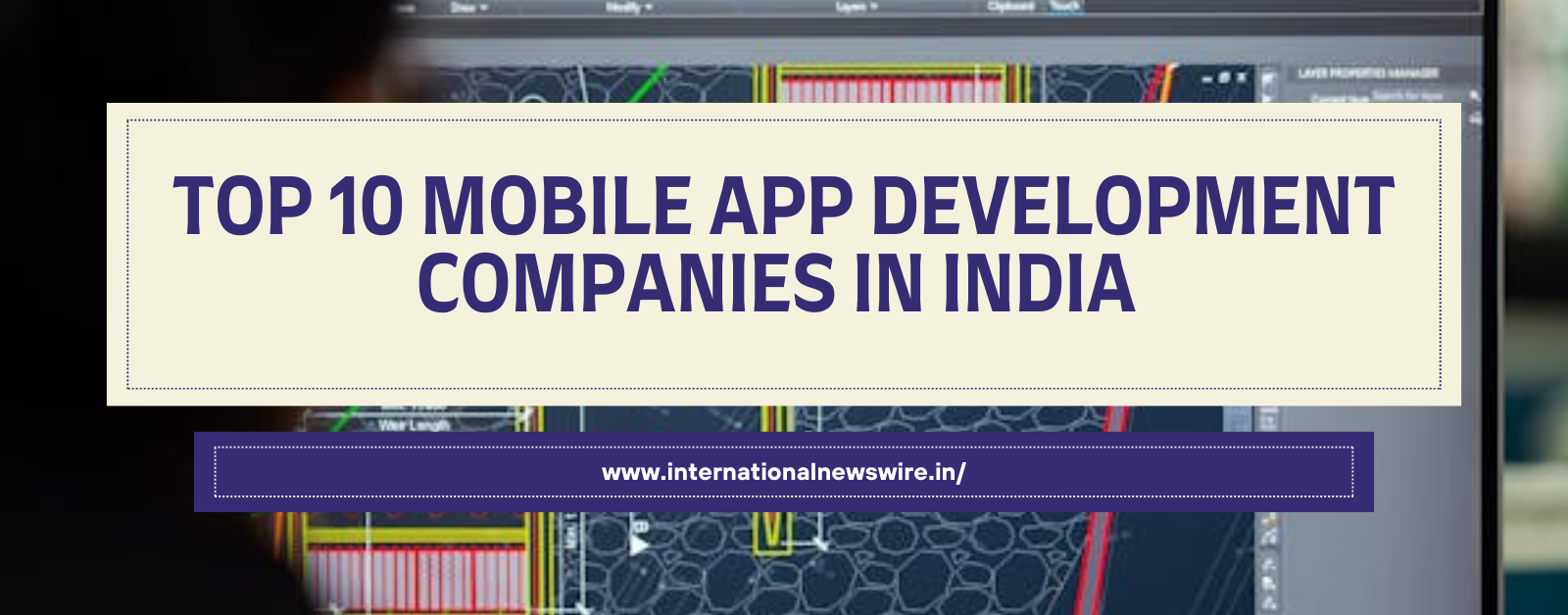In recent years, India has witnessed a transformative journey in its digital landscape, driven largely by a burgeoning ecosystem of innovative startups. These companies have emerged as catalysts of change across various sectors, leveraging advanced technologies and novel business models to redefine traditional paradigms. From healthcare and fintech to education and e-commerce, these startups are at the forefront of driving efficiency, accessibility, and scalability in their respective domains.
At the heart of this transformation lies a deep integration of data analytics, artificial intelligence, cloud computing, and IoT (Internet of Things), empowering businesses to optimize operations, enhance customer experiences, and unlock new avenues for growth. This digital revolution is not just about technological advancement but also about fostering a culture of innovation and entrepreneurship that resonates globally.
Furthermore, these startups are not merely disruptors but enablers of societal impact, addressing critical challenges such as healthcare delivery, financial inclusion, education accessibility, and sustainable living. They exemplify how technology can be harnessed to bridge gaps, empower communities, and drive economic prosperity.
As we explore the top 10 digital transformation startups in India, each one stands as a testament to the country’s vibrant startup ecosystem and its potential to lead the way in shaping the future of industries worldwide. These companies are not only shaping markets but also setting benchmarks for innovation, resilience, and adaptability in a rapidly evolving digital era. Their stories reflect a collective ambition to transform challenges into opportunities, making India a hub of innovation and a global frontrunner in digital transformation.
Table of Contents
1.Innovaccer
Innovaccer is a leading healthcare technology company that aims to simplify complex data-driven processes in healthcare organizations through its unified data platform, InData. Founded in 2014 by Abhinav Shashank, Sandeep Gupta, and Kanav Hasija, Innovaccer has made significant strides in integrating and analyzing healthcare data to improve patient outcomes and operational efficiency. The company’s solutions include population health management, patient engagement, and analytics, catering to healthcare providers, payers, and life sciences organizations globally.
| Details | Information |
|---|---|
| Founded | 2014 |
| Founders | Abhinav Shashank, Sandeep Gupta, Kanav Hasija |
| Headquarters | Noida, India |
| Industry | Healthcare Technology |
| Products | InData Platform, Population Health Management |
| Website | innovaccer.com |
Also Read : Top 10 Gig Economy Startups in India
2.Razorpay
Razorpay is a fintech startup founded in 2014 by Shashank Kumar and Harshil Mathur. It provides payment solutions to businesses through its online payment gateway and other financial services like payment links, subscriptions, and smart collect. Razorpay’s platform supports multiple payment modes and has gained popularity among startups and enterprises in India for its easy integration and robust security features.
| Details | Information |
|---|---|
| Founded | 2014 |
| Founders | Shashank Kumar, Harshil Mathur |
| Headquarters | Bengaluru, India |
| Industry | Fintech |
| Products | Payment Gateway, Payment Links, Subscriptions |
| Website | razorpay.com |
Also Read : Top 10 Data Privacy Startups in India
3.Postman
Postman is a collaboration platform for API development founded by Abhinav Asthana, Ankit Sobti, and Abhijit Kane in 2014. It simplifies the process of designing, testing, and managing APIs, catering to developers and enterprises globally. Postman’s features include automated testing, documentation generation, and API monitoring, making it an essential tool for teams involved in digital transformation and software development.
| Details | Information |
|---|---|
| Founded | 2014 |
| Founders | Abhinav Asthana, Ankit Sobti, Abhijit Kane |
| Headquarters | Bengaluru, India |
| Industry | Software Development Tools |
| Products | API Collaboration Platform |
| Website | postman.com |
Also Read : Top 10 E-learning Startups in India
4.Zapr
Zapr is a media tech startup founded in 2012 by Deepak Baid, Sandipan Mondal, and Sajo Mathews. It specializes in TV audience analytics and media consumption insights using its proprietary technology that identifies TV viewership patterns through mobile devices. Zapr’s platform helps media companies, advertisers, and broadcasters optimize their campaigns and content strategies based on real-time data analytics.
| Details | Information |
|---|---|
| Founded | 2012 |
| Founders | Deepak Baid, Sandipan Mondal, Sajo Mathews |
| Headquarters | Bengaluru, India |
| Industry | Media Technology |
| Products | TV Audience Analytics |
| Website | zapr.in |
Also Read : Top 10 Language Learning Startups in India
5.Ather Energy
Ather Energy is an electric vehicle (EV) startup founded in 2013 by Tarun Mehta and Swapnil Jain. Known for its smart electric scooters, Ather Energy focuses on designing and manufacturing EVs with advanced technology features such as touchscreen dashboard, fast charging, and over-the-air updates. The company aims to revolutionize urban mobility in India by offering sustainable transportation solutions.
| Details | Information |
|---|---|
| Founded | 2013 |
| Founders | Tarun Mehta, Swapnil Jain |
| Headquarters | Bengaluru, India |
| Industry | Electric Vehicles |
| Products | Smart Electric Scooters |
| Website | atherenergy.com |
Also Read : Top 10 Coding Bootcamps in India
6.Cure.fit
Cure.fit is a health and fitness startup founded in 2016 by Mukesh Bansal and Ankit Nagori. It offers a holistic health platform that integrates physical fitness, mental wellness, nutrition, and healthcare services through its app. Cure.fit’s services include gym memberships, online workouts, healthy food delivery, and mental wellness programs, making it a comprehensive solution for individuals seeking a healthier lifestyle.
| Details | Information |
|---|---|
| Founded | 2016 |
| Founders | Mukesh Bansal, Ankit Nagori |
| Headquarters | Bengaluru, India |
| Industry | Health and Fitness |
| Products | Fitness App, Mental Wellness, Healthy Food |
| Website | cure.fit |
Also Read : Top 10 Financial Inclusion Startups in India
7.Unacademy
Unacademy is an edtech startup founded in 2015 by Gaurav Munjal, Roman Saini, and Hemesh Singh. It operates as an online learning platform that offers educational content through live classes and recorded sessions across various competitive exams and academic subjects. Unacademy’s platform allows educators to create courses, interact with students, and conduct assessments, democratizing access to quality education in India.
| Details | Information |
|---|---|
| Founded | 2015 |
| Founders | Gaurav Munjal, Roman Saini, Hemesh Singh |
| Headquarters | Bengaluru, India |
| Industry | Edtech |
| Products | Online Learning Platform |
| Website | unacademy.com |
Also Read : Top 10 Microfinance Startups in India
8.Licious
Licious is an online meat and seafood startup founded in 2015 by Abhay Hanjura and Vivek Gupta. It provides fresh, high-quality meat products sourced directly from farms to consumers through its e-commerce platform. Licious ensures quality control through a stringent cold chain supply and offers a range of meat and seafood options, catering to the growing demand for safe and hygienic food delivery in urban India.
| Details | Information |
|---|---|
| Founded | 2015 |
| Founders | Abhay Hanjura, Vivek Gupta |
| Headquarters | Bengaluru, India |
| Industry | E-commerce (Meat and Seafood) |
| Products | Fresh Meat and Seafood Delivery |
| Website | licious.in |
Also Read : Top 10 Social Impact Startups in India
9.UrbanClap (now Urban Company)
UrbanClap, rebranded as Urban Company, is a service marketplace startup founded in 2014 by Abhiraj Bhal, Varun Khaitan, and Raghav Chandra. It connects customers with local service professionals for various services like beauty treatments, home cleaning, plumbing, and more through its mobile app. Urban Company standardizes service quality through background checks and customer reviews, offering convenience and reliability.
| Details | Information |
|---|---|
| Founded | 2014 |
| Founders | Abhiraj Bhal, Varun Khaitan, Raghav Chandra |
| Headquarters | Gurugram, India |
| Industry | Service Marketplace |
| Products | Home Services |
| Website | urbancompany.com |
Also Read : Top 10 Sustainable Startups in India
10.BYJU’S
BYJU’S is an edtech startup founded in 2011 by Byju Raveendran. It offers personalized learning programs for students in K-12 and competitive exams like JEE, NEET, and CAT through its learning app. BYJU’S uses engaging video lessons and interactive quizzes to make learning effective and enjoyable, catering to millions of students across India and globally.
| Details | Information |
|---|---|
| Founded | 2011 |
| Founder | Byju Raveendran |
| Headquarters | Bengaluru, India |
| Industry | Edtech |
| Products | Learning App |
| Website | byjus.com |
Also Read : Top 10 Circular Economy Startups in India
FAQs on Digital Transformation Startups in India
1. What is digital transformation?
Digital transformation refers to the integration of digital technology into all areas of a business or organization, fundamentally changing how they operate and deliver value to customers. It involves adopting technologies like cloud computing, artificial intelligence, data analytics, and IoT to enhance business processes, improve customer experiences, and drive innovation.
2. Why are startups important in digital transformation?
Startups play a crucial role in digital transformation due to their agility, innovation-driven mindset, and ability to disrupt traditional industries. They often pioneer new technologies and business models, challenging established norms and driving industry-wide innovation. Startups can quickly adapt to market changes and leverage technology to solve complex problems more efficiently than larger, more traditional organizations.
3. How are digital transformation startups contributing to India’s economy?
Digital transformation startups in India are contributing significantly to economic growth by creating new job opportunities, attracting investment, and driving technological advancements across various sectors. They are also enhancing productivity, improving access to services like healthcare and education, and fostering entrepreneurship and innovation culture within the country.
4. What are some challenges faced by digital transformation startups in India?
Some challenges faced by digital transformation startups in India include:
- Regulatory hurdles: Navigating complex regulatory environments can be challenging, especially in sectors like fintech and healthcare.
- Access to funding: While funding opportunities are increasing, access to capital remains a challenge for many startups, particularly in early stages.
- Talent acquisition: Finding skilled talent, especially in emerging technologies like AI and data science, can be difficult due to competition from larger corporations and global demand.
- Infrastructure limitations: Inconsistent infrastructure, particularly in rural areas, can hinder the scalability of startups relying on digital technologies.
5. What sectors are prominent in digital transformation startups in India?
Key sectors where digital transformation startups in India are making significant strides include:
- Healthcare: Startups using technology to improve healthcare delivery, patient care, and medical diagnostics.
- Fintech: Companies innovating in digital payments, lending, insurance, and blockchain technology.
- Edtech: Startups offering online learning platforms, virtual classrooms, and personalized educational content.
- E-commerce: Platforms revolutionizing online retail, logistics, and customer experience.
- Agri-tech: Innovations in agriculture using IoT, data analytics, and precision farming techniques to increase productivity and sustainability.
6. How can businesses benefit from partnering with digital transformation startups?
Businesses can benefit from partnering with digital transformation startups by:
- Innovation: Access to cutting-edge technologies and solutions that can transform operations and enhance competitiveness.
- Agility: Startups often offer flexible and scalable solutions that can be quickly integrated into existing systems.
- Cost-efficiency: Leveraging startups’ cost-effective solutions compared to traditional vendors.
- Market expansion: Collaborating with startups can open new market opportunities and reach new customer segments.
7. What are some examples of successful digital transformation startups in India?
Some successful examples include:
- Innovaccer: Transforming healthcare with its unified data platform and population health management solutions.
- Razorpay: Innovating in fintech with its online payment gateway and financial services.
- BYJU’S: Revolutionizing education with its personalized learning app for students.
- Urban Company: Transforming the service industry with its online marketplace for home services.
- Ather Energy: Leading the electric vehicle revolution with smart electric scooters.
Conclusion
In conclusion, the landscape of digital transformation in India is vibrant and dynamic, propelled by a wave of innovative startups that are reshaping industries across the board. From healthcare and fintech to education and e-commerce, these companies are leveraging advanced technologies to drive efficiency, enhance customer experiences, and foster economic growth.
The success stories of startups like Innovaccer, Razorpay, BYJU’S, and Urban Company highlight the transformative power of digital technologies in addressing complex challenges and creating new opportunities. These startups not only pioneer groundbreaking solutions but also contribute significantly to India’s global reputation as a hub of innovation and entrepreneurship.
Looking ahead, the continued evolution of digital transformation in India will depend on fostering a supportive ecosystem that encourages entrepreneurship, innovation, and collaboration between startups, industries, and government bodies. Overcoming challenges such as regulatory complexities, access to funding, and talent acquisition will be crucial in sustaining this momentum.
Ultimately, as digital transformation becomes increasingly integral to the fabric of Indian economy and society, these startups will continue to play a pivotal role in driving forward innovation, driving inclusivity, and shaping a brighter future for generations to come.
Also Read
- Top 10 Gig Economy Startups in India
- Top 10 Data Privacy Startups in India
- Top 10 E-learning Startups in India
- Top 10 Language Learning Startups in India
- Top 10 Coding Bootcamps in India
- Top 10 Financial Inclusion Startups in India
- Top 10 Microfinance Startups in India
- Top 10 Social Impact Startups in India
- Top 10 Sustainable Startups in India
- Top 10 Circular Economy Startups in India
Last Updated on Saturday, June 22, 2024 11:09 am by International Newswire Team



